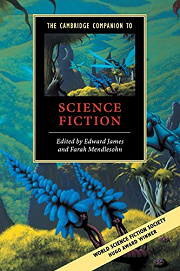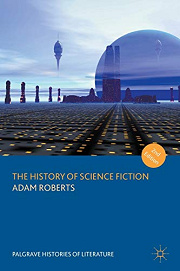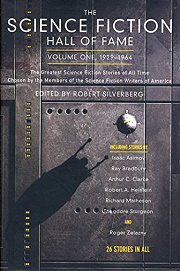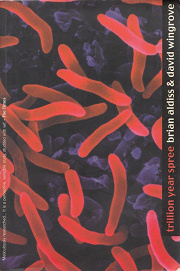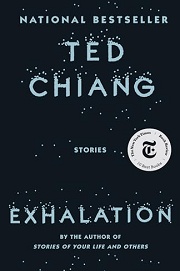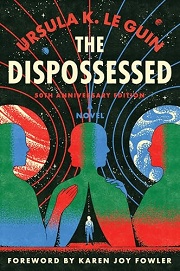Share your thoughts in a quick Shelf Talk!
The Cambridge Companion to Science Fiction by Edward James and Farah Mendlesohn
Chart the evolution of a genre that keeps reinventing tomorrow. With insightful essays by leading scholars, The Cambridge Companion to Science Fiction maps the field from pulp rockets to cyberpunk metropolises, exploring themes, authors, and ideas that define SF’s enduring power.
Have you read this book? Share what you liked (or didn’t), and we’ll use your answers to recommend your next favorite read!
Love The Cambridge Companion to Science Fiction but not sure what to read next?
These picks are popular with readers who enjoyed this book. Complete a quick Shelf Talk to get recommendations made just for you! Warning: possible spoilers for The Cambridge Companion to Science Fiction below.
In The Cambridge Companion to Science Fiction, did you enjoy ...
... the sweeping, chronological survey of SF’s evolution?
The History of Science Fiction by Adam Roberts
If you loved how The Cambridge Companion to Science Fiction maps the genre from Wells and Verne through the pulp era, the Golden Age, New Wave, and cyberpunk, Roberts gives you that same panoramic tour with sharp, witty analysis. He threads together movements you saw highlighted—like space opera’s reinventions and the rise of feminist and postcolonial SF—into a single, compelling narrative you can dip into or read straight through.
... hearing many distinct voices and perspectives on what SF can be?
The Science Fiction Hall of Fame, Volume One, 1929–1964 by Robert Silverberg
One joy of the Companion is its chorus of contributors giving you multiple angles on the field. This landmark anthology lets you experience that diversity directly in fiction: Asimov’s “Nightfall,” Sturgeon’s “Microcosmic God,” Clarke’s “The Nine Billion Names of God,” Keyes’s “Flowers for Algernon,” and Zelazny’s “A Rose for Ecclesiastes.” You’ll feel those traditions the Companion charts—sense of wonder, social critique, stylistic experimentation—come alive story by story.
... the rigorous, idea-rich criticism and historical context?
Trillion Year Spree: The History of Science Fiction by Brian W. Aldiss and David Wingrove
You enjoyed the Companion’s critical essays that connect authors, subgenres, and eras; Aldiss does that with bold theses and memorable turns of phrase. From treating Mary Shelley as SF’s true progenitor to incisive chapters on the Gernsback pulps, Campbell’s Golden Age, and the New Wave ruptures the Companion summarizes, this is a brainy, spirited grand tour packed with insights you’ll keep arguing with—in the best way.
... the probing, thought-experiment approach to time, free will, and consciousness?
Exhalation by Ted Chiang
If the Companion’s chapters on philosophical SF—grappling with AI, time travel paradoxes, and the ethics of technology—were your sweet spot, you’ll love these stories. “The Merchant and the Alchemist’s Gate” refracts time travel through fate and regret; “The Lifecycle of Software Objects” asks what responsibility we owe sentient AIs; “The Truth of Fact, the Truth of Feeling” pits perfect recall tech against human memory. Chiang delivers the big ideas you read about, with heart.
... the emphasis on social science, utopias/dystopias, and cultures over gadgets?
The Dispossessed by Ursula K. Le Guin
The Companion’s attention to soft SF—especially its discussions of utopia/dystopia and political worldbuilding—points straight to this classic. Following physicist Shevek between the anarchist moon Anarres and the capitalist planet Urras, Le Guin uses a theory of simultaneity as scaffolding for anthropology, economics, and ethics. If you liked how the Companion probes society through SF frameworks, this novel lets you live inside that inquiry.
Unlock your personalized book recommendations! Just take a quick Shelf Talk for The Cambridge Companion to Science Fiction by Edward James and Farah Mendlesohn. It’s only a few questions and takes less than a minute.
